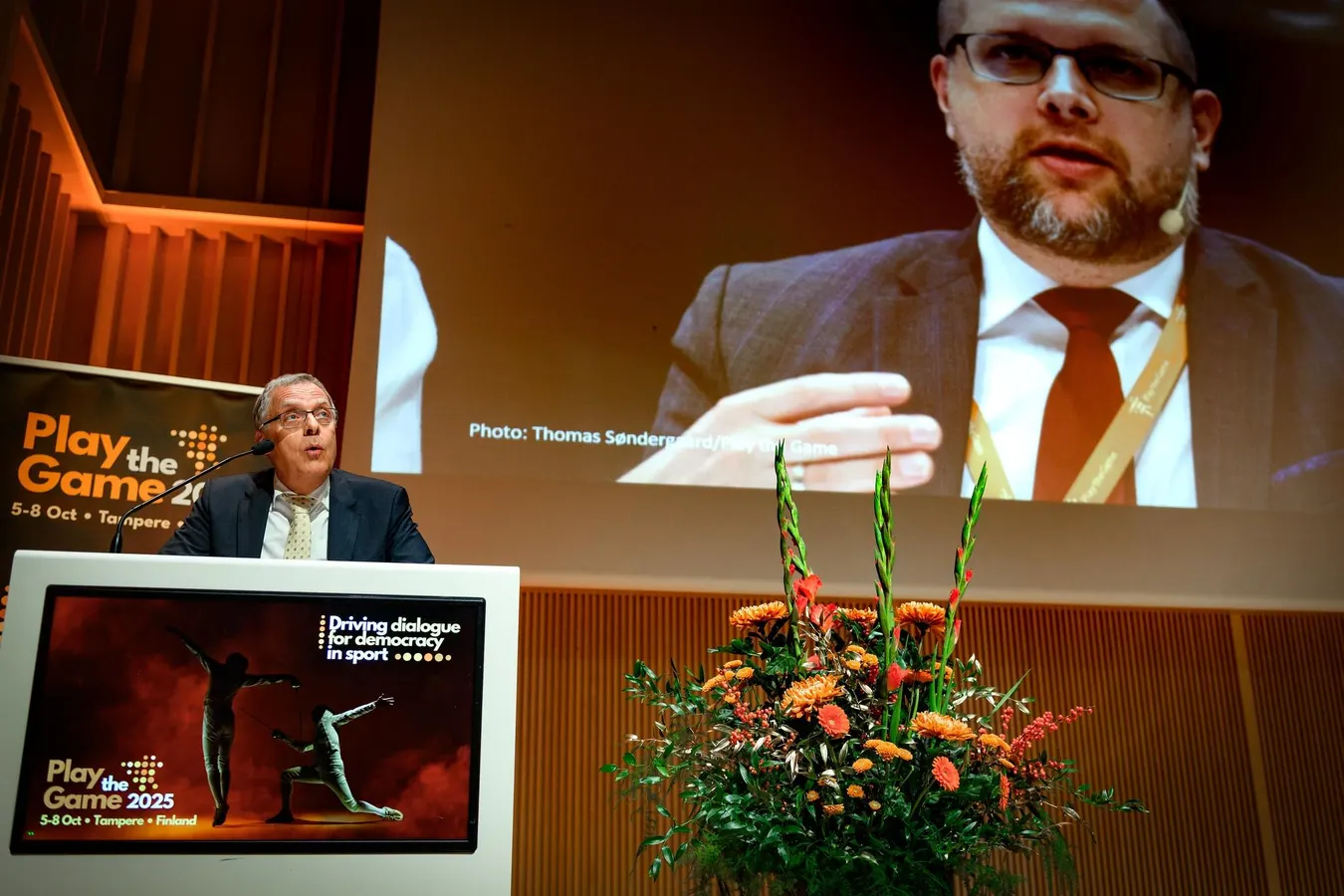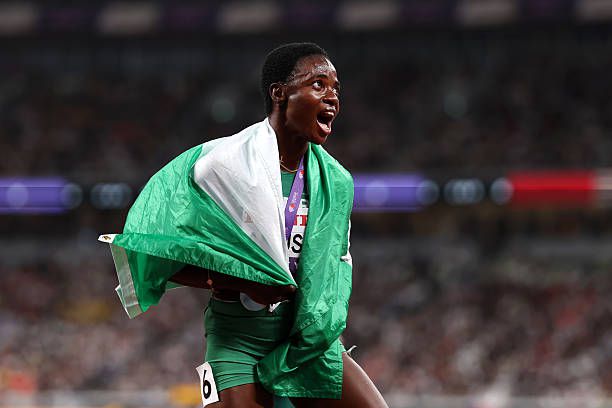By Contributor,John Affleck,Thomas S
Copyright forbes

Play the Game founder Jens Sejer Andersen speaks to attendees at the Play the Game conference in Tampere, Finland, on Oct. 5, 2025. Andersen called for information about missing Belarusian athlete advocate Anatol Kotau, pictured behind Andersen.
Photo by Thomas Søndergaard/Play the Game
TAMPERE, Finland – More than 500 sports leaders from all over the world – current and former athletes, advocates, government officials, journalists and academics – have been meeting this week to discuss some of the planet’s most critical issues in sports.
Sexual abuse of athletes. Anti-doping efforts. Illegal sports betting. Match fixing. Debates on gender issues, sustainability and the use of sports as a tool by politicians.
But one important voice is missing from the Play the Game conference.
Anatol Kotau, a former Belarusian diplomat, is the international relations coordinator for the Belarusian Sport Solidarity Foundation, a nonprofit that supports athletes who have faced oppression by the regime of Alexander Lukashenko.
Kotau, who appeared at the Play the Game conference last year, went missing Aug. 21 in Turkey while on a work trip there.
Jens Sejer Andersen, the founder and now senior adviser to Play the Game, called on UEFA, European soccer’s governing body, and the International Olympic Committee to pressure Belarusian, Russian and Turkish authorities to reveal all they know about the case in his opening remarks to the conference.
“We do not know the reason for Anatol Kotau’s disappearance,” Andersen said. “But bearing in mind how Russian and Belarusian intelligence services attack dissidents in exile, we have reasons to be deeply concerned about his destiny.”
MORE FOR YOU
Making Sports Better
Founded in 1997, Play the Game is “an initiative run by the Danish Institute for Sports Studies that promotes democratic values in world sports with an emphasis on freedom of expression, transparency, and open dialogue,” the organization says on its website.
Over the years, it has been something of a canary in the coal mine, drawing attention to important sports issues a beat before the public were aware of them, notably doping and match-fixing scandals. It was once primarily a resource for journalists but has expanded far beyond, pulling in officials from national and international sports governing bodies and many others.
This year’s broad-ranging agenda included remarks by U.S. Anti-Doping Agency CEO Travis Tygart, two-time Olympic champion 800-meter runner Caster Semenya and Maggie Nichols, a U.S. gymnast whose testimony helped spark the downfall of abusive team physician Larry Nassar.
Soccer silence
So Andersen’s alarm at the disappearance of Kotau carries weight, particularly as Belarus and Denmark get set to play a World Cup qualifier on Thursday. Andersen called on UEFA, as well as the International Olympic Committee and FIFA, to push for the release of Kotau.
“The Olympic movement has been remarkably silent. Anatol Kotau should be no stranger to them, as he was once a secretary general of the Belarusian Olympic Committee,” he said.
“Also, FIFA and UEFA, who continue to allow the Belarusian national football team to take part in the World Cup qualifiers, remain passive. So allow me to call on the international sports movement to step up and put pressure on the Belarusian and Turkish authorities to clarify the circumstances surrounding Anatol Kotau’s disappearance, secure his personal safety, and make sure he is free to travel home to his family.”
UEFA and the IOC each failed to respond to messages asking for comment on Kotau’s disappearance.
The Turkish authorities have said that Kotau left the country voluntarily on a boat crossing the Black Sea from Trabzon to Sochi in Russia soon after he arrived, but according to Andersen, they refuse to share any evidence to support that explanation.
Kotau had been living in exile with his family in Poland prior to his disappearance. He was sentenced in absentia in Belarus to 12 years in prison for opposing Lukashenko’s treatment of athletes.
“The disappearance of Anatol Kotau is a very, very worrying signal for sport,” Andersen said in an interview after his speech. “Anatol Kotau was at our last conference and proved himself a very intelligent, thoughtful, and nuanced man, even if he is campaigning from exile on behalf of Belarusian athletes who opposed the country’s autocratic leader, Lukashenko.”
Editorial StandardsReprints & Permissions



